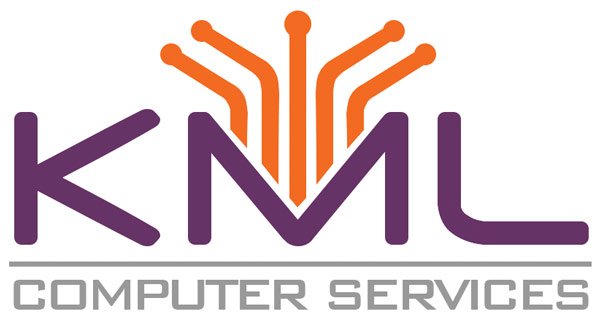
Healthcare is one of the most regulated industries in the world, and for good reason. Protecting patient privacy, ensuring the security of sensitive health data, and maintaining compliance with complex regulations like the Health Insurance Portability and Accountability Act (HIPAA) are critical responsibilities. Managed IT services have become an essential component of the healthcare industry, enabling healthcare providers to focus on patient care while ensuring the security, efficiency, and compliance of their IT infrastructure.
With the increasing demand for digital transformation in healthcare, managed IT services have emerged as a vital solution for healthcare organizations seeking to improve operational efficiency, reduce costs, and enhance security. By outsourcing IT management to a trusted service provider, healthcare companies can benefit from expert guidance, proactive monitoring, and timely support. This not only simplifies the complexities of regulatory compliance but also ensures that healthcare organizations can deliver better patient care while maintaining the integrity of their IT systems. Here’s a closer look at the role of managed IT services in healthcare compliance.
The Complexity of Healthcare Compliance
Healthcare organizations are required to adhere to a variety of federal, state, and international regulations. Among the most prominent are:
- HIPAA: This U.S. law mandates strict standards for the protection of patient health information (PHI), including both privacy and security rules.
- General Data Protection Regulation (GDPR): Applicable to organizations handling the data of EU citizens, this regulation imposes stringent data privacy and security requirements.
- HITECH Act: This law promotes the adoption of electronic health records (EHRs) and strengthens HIPAA compliance.
- State-Level Regulations: Various states have their own data protection laws, adding another layer of complexity.
Failure to comply with these regulations can result in severe penalties, reputational damage, and, most importantly, compromised patient trust.
Managed IT Services for Healthcare Providers
Managed IT services provide healthcare organizations with the expertise, tools, and resources needed to meet compliance requirements while focusing on their core mission of patient care, positioning themselves as a solutions provider. Providers like KML Computer Services offer tailored IT solutions that address the unique challenges of healthcare compliance. Here’s how managed IT services ensure regulatory adherence:
Secure Data Storage
Healthcare providers handle vast amounts of electronic protected health information (ePHI). Managed IT services ensure data is securely stored both on-premises and in the cloud by implementing:
- Encrypted Storage: Ensures ePHI is unreadable to unauthorized users.
- Access Controls: Restricts data access to authorized personnel only.
- Redundancy Measures: Prevents data loss through regular backups and replication.
Encryption for Patient Data Protection
HIPAA requires encryption for ePHI to safeguard patient information during storage and transmission. Managed IT services use advanced encryption protocols that:
- Protect data at rest and in transit.
- Meet HIPAA’s stringent security requirements.
- Ensure confidentiality even in the event of unauthorized access.
Regular Audits and Risk Assessments
Compliance often requires periodic risk assessments and audits. Managed IT service providers conduct these assessments to identify vulnerabilities and implement corrective actions, ensuring continuous adherence to regulatory standards.
Continuous Monitoring and Proactive Incident Response
Real-time monitoring of systems ensures vulnerabilities are identified and addressed promptly. Managed IT services include:
- System Audits: Regular assessments to identify compliance gaps.
- Threat Detection: Software tools that monitor for unusual activity.
- Reporting: Detailed logs for regulatory compliance and forensic analysis.
One of the greatest advantages of managed IT services is the ability to detect and respond to threats before they escalate into breaches. Proactive approaches include:
- Advanced Threat Detection: Tools that analyze network traffic, user behavior, and system logs to detect malware infections, phishing attempts, and unauthorized access attempts.
- Automated Incident Response: Immediate actions such as isolating affected systems, blocking unauthorized IP addresses, and alerting IT teams for further investigation.
Disaster Recovery and Business Continuity
Healthcare providers cannot afford downtime. Managed IT services set up robust disaster recovery plans and business continuity strategies to ensure that critical systems and data remain accessible during emergencies, such as cyberattacks or natural disasters.
Compliance Documentation
Proper documentation is a cornerstone of regulatory compliance. Managed IT services assist in maintaining accurate records of security policies, incident responses, and audit results, which can be critical during inspections or investigations.
Why Proactive IT Management Matters in the Healthcare Industry
The healthcare industry is a prime target for cyberattacks due to the sensitive nature of patient data, and proactive healthcare IT solutions minimize these risks by:
- Reducing Downtime: Quick responses prevent disruptions to patient care.
- Avoiding Penalties: Maintaining compliance shields practices from HIPAA fines.
- Building Trust: Secure systems enhance patient confidence.
The KML Advantage in Healthcare Compliance
Managed IT service providers like KML Computer Services deliver tailored IT strategies that meet the unique needs of healthcare organizations. Their comprehensive support includes:
- 24/7 Monitoring: Ensuring continuous protection.
- Help Desk Services: Addressing IT issues promptly.
- Scalable Solutions: Adapting IT infrastructure as practices grow.
By leveraging industry-leading expertise, state-of-the-art tools, and a proactive approach, KML enables healthcare providers to focus on patient care while ensuring their IT systems are secure, compliant, and resilient against evolving threats.
Secure, Compliant IT Infrastructure for Healthcare Providers
Healthcare compliance is a challenging yet essential aspect of delivering quality care. Managed IT services play a pivotal role in helping organizations meet regulatory requirements, protect patient data, and maintain operational efficiency. By partnering with providers like KML Computer Services, healthcare practices gain access to tailored solutions that simplify compliance, enhance security, and safeguard their future.
Contact us to learn more about how managed IT services can help your healthcare organization stay compliant.
Sidney Rossi with over 25 years of software sales, including hardware and software, is not only seen as a leader in the technology industry, but a proven performer.

